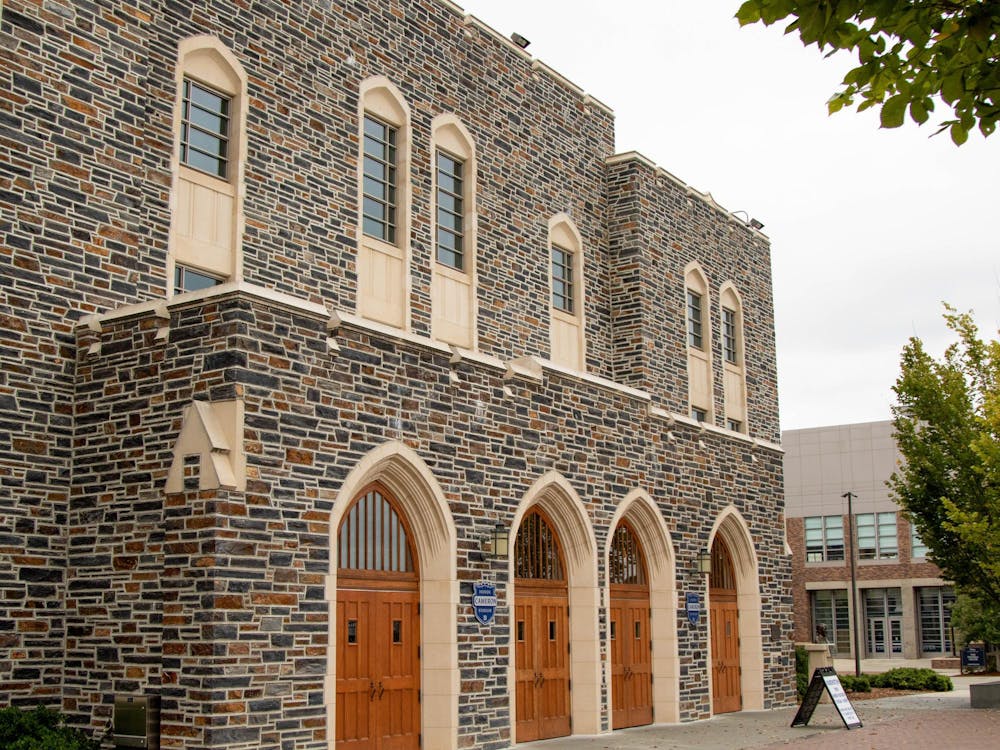Duke’s Office of the University Registrar sent its annual notification Aug. 28 informing the Blue Devil community of the Equity in Athletics Disclosure Act (EADA) report.
The EADA, a law passed in 1994, requires university athletic departments to submit a team breakdown of program finances to promote both gender and financial equity in college athletics. The Department of Education Initiative releases a yearly report with the total revenues and expenses for each school, and a breakdown on spending from coaches salaries to recruiting. Each school submits its own financial information for the year by filling out this survey.
Below is the data for Duke’s 27 varsity teams, based on the 2022-23 academic year. It’s important to underscore that the EADA specifically defines revenue as “from appearance guarantees and options, an athletic conference, tournament or bowl games, concessions, contributions from alumni and others, institutional support, program advertising and sales, radio and television, royalties signage and their sponsorships, sport camps, state or other government support, student activity fees, ticket and luxury box sales, and any other revenues attributable to intercollegiate athletic activities.”
Duke’s downloadable data, other universities' information and comparisons between programs can be accessed here.
Revenue
The total athletic department revenue for the year was just over $152.5 million — the 27th-highest figure in the nation. Football generated the most for the school, as ticket sales and TV media deals earned the athletic department more than $60 million.
The second-highest earning sport was men’s basketball with $43.9 million, and the women’s basketball team was third with $5.3 million. The Blue Devils lead the country in men’s basketball revenue, beating out Louisville by more than 5 million. Rounding out the top 5 are Syracuse, North Carolina and Illinois.
Duke also generates $34.2 million from non-football and basketball revenue. The highest-earning sports outside of those are men’s lacrosse, rowing — which the Blue Devils lead all schools with $3.4 million — and women’s track and field.
If the House v. NCAA settlement is approved, athletic departments would be permitted to use up to 22% of their total department revenue to pay players. For Duke, that would add up to roughly $33.6 million. Scholarship limits will also be removed, so teams could increase the amount of rostered players that are funded on scholarship.
Expenses
Duke’s total expenses were roughly $150.8 million, $108.6 million of which was specifically allocated for teams — so excluding athletic department staff salaries and NCAA fees. Just like with revenue, football was the highest expenditure sport at $39.4 million, and men’s and women’s basketball followed with $21.4 million and $8.2 million, respectively.
Excluding football, Duke spends roughly the same on men’s and women’s teams, with $37.2 million for men's teams and $32 million for women’s. Athletic-related student scholarships were the highest categorical expense across the board, costing the athletic department $27.6 million. Men’s teams earned 52% of the aid and women’s teams earned 48%.
Gameday operational expenses are also a large factor in how much team’s spend. On a per-participant basis, men’s and women’s basketball were the most costly sports, but football’s total gameday expenses add to $4.5 million, higher than the $4.1 million of men’s basketball. Men’s and women’s lacrosse combined also crossed the $1.5 million threshold.
There are 23 total head coaches at Duke and 67 assistants as of 2022-23. Although individual salaries aren’t reported, the average men’s head coach — including football and basketball — made $687,176 and the average women’s head coach made $209,582.
For both full-time and part-time team assistants (with 10 football), a men’s team’s staffer made an average of $209,868, and a women’s team assistant made $77,554 on average.
The national 2023-24 EADA report is expected to be released in the coming months.
Get The Chronicle straight to your inbox
Signup for our weekly newsletter. Cancel at any time.

Ranjan Jindal is a Trinity junior and sports editor of The Chronicle's 120th volume.

